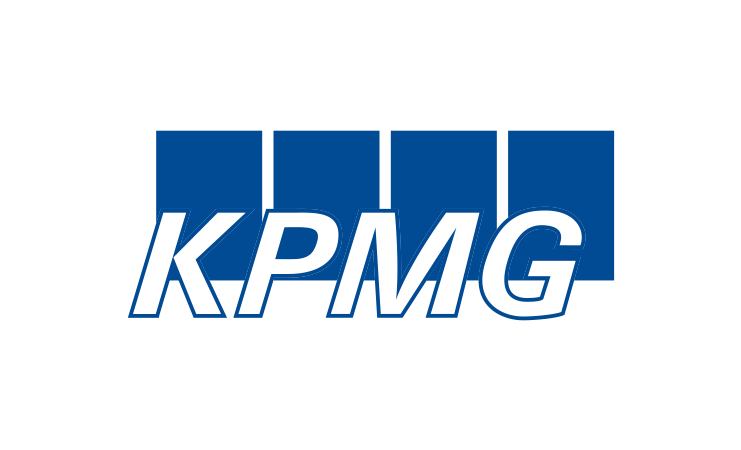Lagardère Travel Retail acquires Schiphol Airport Retail

Name of the deal: Lagardère Travel Retail acquires Schiphol Airport Retail
Date announced and/or closed: Announced December 2024, Closed April 2025
Published value: € 500 – 1000 M
Buyer(s): Lagardère Travel Retail
Target: Schiphol Commercial Services
Seller: Schiphol Group
Involved firms and advisors
Involved firms and advisors buy side:
Lagardere Travel Retail, Wintertaling (Legal), KPMG (Transaction Services)
Involved firms and advisors target:
N/a (see sell-side)
Involved firms and advisors sell side:
ING Corporate Finance (M&A / Financial), De Brauw (Legal), Deloitte (Transaction Services)
Pitch
Brief description deal / Deal outline
In April this year, Schiphol Group completed the sale of a 70% stake in Schiphol Commercial Services (“SCS”), to Lagardère Travel Retail (“LTR”), which was first announced on 16 December 2024. SCS is the operator of all airside retail activities for the core categories of Perfumes & Cosmetics, Sunglasses, and Liquor, Confectionary & Tobacco at Schiphol (currently c. 25 stores), while LTR is a leading Paris-based travel retailer operating over 5,000 stores in airports, railway stations and other locations in 42 countries.
Why should this deal win the Award for Best Deal 2025?
About Lagardère Travel Retail
A leading global travel retail company, operating duty-free, specialty, and food service stores in airports, train stations, and other travel hubs worldwide. It is part of the French Lagardère Group and is active in over 40 countries, known for brands like Relay, Aelia Duty Free, and numerous luxury and convenience concepts.
About Schiphol Airport Retail (SCS)
Known as Schiphol Commercial Services, operates the duty-free and retail outlets at Amsterdam Airport Schiphol. The company manages a mix of luxury, fashion, and travel convenience stores within the airport terminals and has been jointly owned by Amsterdam Airport Schiphol and Gebr. Heinemann.
In April this year, Schiphol Group completed the sale of a 70% stake in Schiphol Commercial Services (“SCS”), to Lagardère Travel Retail (“LTR”), which was first announced on 16 December 2024. SCS is the operator of all airside retail activities for the core categories of Perfumes & Cosmetics, Sunglasses, and Liquor, Confectionary & Tobacco at Schiphol (currently c. 25 stores), while LTR is a leading Paris-based travel retailer operating over 5,000 stores in airports, railway stations and other locations in 42 countries.
The sale of SCS to LTR was a unique transaction in the Dutch M&A landscape, combining the complex, state-owned and highly visible Schiphol setting with an extremely competitive, highly international auction in which bidders not only competed on headline price, but also and more importantly on factors such as concession agreement conditions, business plan ambitions, store designs, assortment propositions, pricing plans, marketing and branding ideas, and sustainability.
The process resulted in an very successful outcome, both for direct stakeholders, as well as employees and travellers, with both a highly satisfied seller and buyer. The transaction also demonstrates that within retail, which has in the past few years been considered a challenging sector for M&A, for the right assets and with the right process, very favourable results can be achieved.
(The preparation for) the sale of SCS began with the acquisition by Schiphol Group of Kappé, the operator of the airside Perfumes & Cosmetics and Sunglasses stores at Schiphol, in early 2024. To bring all the core categories to the next level, Schiphol decided to organise SAR, the operator of the airside Liquor, Confectionary & Tobacco stores, and Kappé in a combined entity. In this entity, the majority of the shares were to be sold to an international travel retailer to leverage, among others, global purchasing power and expertise.
In addition to a sale of the shares, SCS was granted a 10-year concession agreement to operate the airside retail activities for all the core categories as part of the transaction. At the end of this concession period, Schiphol will reacquire all the shares of SCS. The lease payments to Schiphol Group that are part of this concession agreement, with fees per core category and passenger type (Schengen vs. non-Schengen), as well as minimum guaranteed concession payments, are a major funding source for Schiphol Group’s ambitious plans for the coming decade and represent the lion’s share of the financial value created by the transaction for Schiphol Group.
Schiphol Group retained ING Corporate Finance as sole financial adviser, with De Brauw Blackstone Westbroek as legal and Deloitte as FDD adviser, to organise, prepare and execute this strategic sell-side process and to find the right partner to pursue its key goals. This search was successfully executed through a highly competitive sale process, starting with an extensive preparation period in which, in addition to typical sell-side steps, detailed tender requirements were set out, the combination of Kappé and SAR in one entity was detailed, and the buy-back of 60% of the shares in SAR not yet owned by Schiphol Group from its current operator were prepared.
The preparation stage was followed by a highly interactive marketing phase, in which a reputed, international set of travel retailers was invited for the process, followed by initial information sharing and extensive tours of the stores at Schiphol.
Bidders were requested to submit extensive non-binding offers (“NBOs”) at the end of the marketing phase, covering not only typical aspects such as a price for the shares, but also topics such as envisaged store designs, operating model, marketing and assortment strategy, digital capabilities, pricing model and ESG. In addition, parties were requested to share detailed business plans including projected concession fees using a provided Excel template, in which an incentive mechanism to prioritise revenue growth over direct margin enhancement was introduced to align incentives between Schiphol Group and the ultimate acquirer. The extensive NBOs, with an average 250+ page count, were carefully reviewed and assessed by Schiphol Group and its advisers, with a select group of bidders subsequently admitted to the next round.
During this due diligence and binding offer round, the selected bidders and Schiphol Group conducted comprehensive two-way due diligence with interactive expert sessions on topics such as store design, marketing, digital, pricing and ESG, in addition to traditional subjects such as finance, tax and legal as well bidder-specific topics.
Following final bids and negotiations and the completion of the state-owned Schiphol Group’s governance process, LTR was selected as the preferred bidder, scoring strongly across aspects such as valuation (incl. concession agreement parameters), marketing and assortment, overall branding, pricing, design and sustainability.
From the Schiphol Group side, the transaction was led by Arthur Reijnhart (Executive Director Schiphol Commercial) and Tim de Bie (Schiphol Group Director Commercial Terminal), with close involvement and contributions from many different Schiphol Group teams, including but not limited to ESG, marketing, finance, treasury and M&A.
What is the impact of this deal for the company?
With LTR as its new majority-owner, SCS can rapidly accelerate and strengthen its ambitions to enhance the passenger experience at Schiphol, with among others newly designed stores, a clear pricing proposition, renewed and/or expanded assortments, and a new brand proposition.
What is the impact of this deal for the direct stakeholders?
On the basis of an comprehensively prepared, tightly executed auction process that was competitive until the very last stage, combining tailored approaches per potential buyer with a disciplined timetable, interim rounds, and detailed offers covering all aspects of the new potential set-up, a highly satisfactory outcome was achieved for Schiphol Group.
The outcome was not only considered successful in direct financial terms, but perhaps even more importantly, is also a cornerstone of Schiphol Group’s new commercial strategy, aiming to, with the expertise and capabilities of LTR, boost passenger satisfaction and profitability by delivering a world-class passenger experience, accelerating revenue growth, and improving efficiency.
For LTR, Schiphol will become LTR’s second largest airport (after Paris) and thus the transaction represents an important milestone to strengthen their presence at one of Europe’s largest airport hubs.
Selected feedback from key stakeholders in the process pasted below provides further colour on the impact of the transaction.
“The expansion of the cooperation with Lagardère Travel Retail is a very important moment for Schiphol in the implementation of our new retail strategy. With our intensive investment program over the next few years, we aim to restore Schiphol’s magic and iconic status as a leading airport. With Lagardère Travel Retail, we have found a partner with whom we will transform our duty-free stores into beautiful locations with a modern assortment, appealing prices and attractive appearance.” Arthur Reijnhart, Executive Director Schiphol Commercial
“The biggest compliment we got from the bidders who did not win was that it was well run and well communicated. From an airport viewpoint we met each milestone in the process on time, with a strong team internally and the right advisors.”
“All the major [duty-free] players were involved and showed strong commitment, which meant that we had really high-quality bids. It was also super-interesting for us to learn from them through the multiple rounds of interaction and the many expert sessions on sustainability, on digital, on marketing and other elements. This all helped to frame our strategy around these core categories even further.” Tim de Bie, Schiphol Group Director Commercial
What is the impact of this deal on society?
As described above, the achieved set-up is set to enhance the passenger experience at Schiphol with e.g. enhanced assortment, price proposition, design and sustainability, which was a key objective of the transaction.
Employees at the stores will also benefit from the ambitious new plans for travel retail at Schiphol and new organisational initiatives, as will the more than 65,000 other people working at Schiphol and all other stakeholders directly or indirectly involved with the airport.
What was most complex about this deal?
Transaction setting: This deal was executed in a highly visible, state-owned setting with complex governance, timeline and transaction requirements. This unique and in certain ways very Dutch setting was combined with a tightly run, highly competitive and very international auction process.
Transaction structuring and legal documentation: As mentioned above, the sale of the shares was only one part of the transaction, with lease conditions and payments set out in the 10-year concession contract, with different payments structures per core category and passenger type (Schengen vs. non-Schengen), as well as minimum guaranteed concession payments, having a much larger financial impact. The deal also involved a buy-back of 60% of the shares in SAR not yet owned by Schiphol Group, the acquisition of Kappé (executed before the transaction), and the combining of SAR and Kappé into SCS.
Transaction objectives and assessment criteria: Headline price and total financial value were only part of the assessment criteria. Factors such as proposed store designs, marketing plans, pricing proposition, ESG, and digital strategy were also requested and provided in extensive NBOs and binding offers and subsequently carefully assessed, among others through comprehensive two-way due diligence with interactive expert sessions involving a myriad of different teams and subject experts.
Stemmen is niet meer mogelijk























